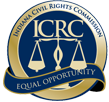INDIANAPOLIS – The Indiana Civil Rights Commission’s (ICRC) Deputy Director, Akia Haynes, announced today that there is probable cause to believe that a former female bartender was terminated from her position at Lebanon Moose Lodge in Lebanon, Ind. due in part to her fiancé being African-American.
Based on a full review of the relevant files and records, it was made clear that the Acting Governor of the Respondent did not want the Complainant to work at the organization’s “poker nights” because the members may be offended that she had an African-American fiancé.
While Respondent’s representative alleges that the Complainant was terminated, along with another bartender, because of financial constraints, there is no evidence to substantiate these claims. Moreover, while Respondent was given several opportunities to abide by its statutory requirement to file a written answer to the Complaint filed by the Complainant, it failed to meet its burden.
Therefore, given the evidence provided by both parties, and following the state’s preliminary investigation, there is sufficient evidence to believe that the Respondent’s rationale for the adverse employment action appears to be pretext for unlawful discrimination and unworthy of credence. As such, probable cause exists to believe an unlawful discriminatory practice occurred in this instance.
In order to prevail on such a claim, Complainant must show that: (1) she is a member of a protected class; (2) she suffered an adverse employment action; (3) she was meeting Respondent’s legitimate business expectations; and (4) similarly-situated employees of a different race were treated more favorably under similar circumstances.
It is important to note that a finding of probable cause does not resolve a Civil Rights Complaint. Rather, it means the State has concluded its preliminary investigation and determined there is sufficient evidence to support reasonable suspicion that the Indiana Civil Rights Law has been violated. The Indiana Civil Rights Law provides remedies, including compensatory damages and injunctive relief, such as changes in the employer’s policies and training.
